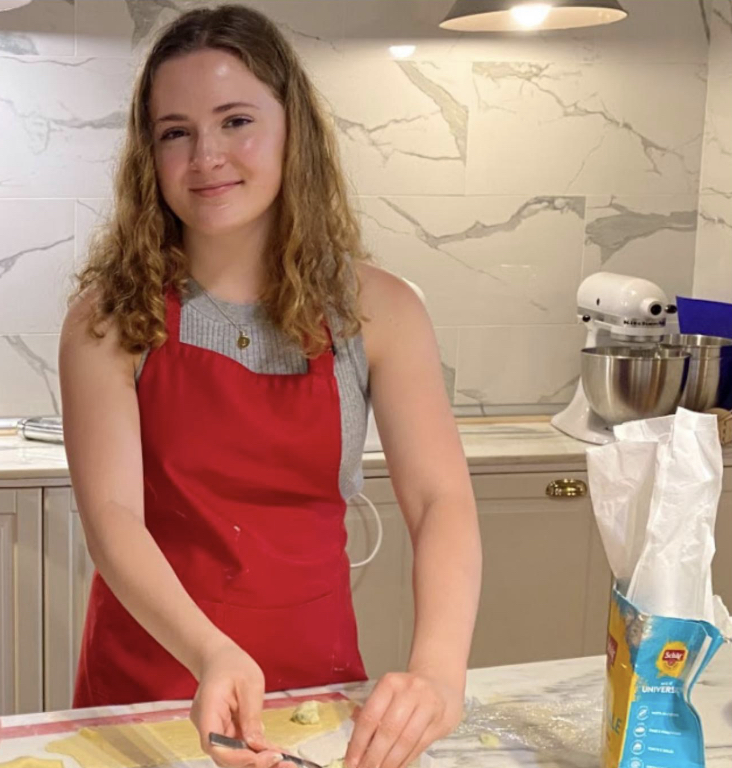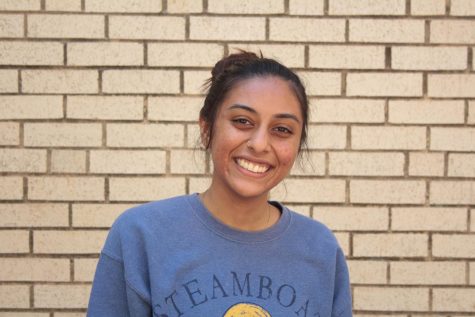In the midst of the pandemic, Junior Jacque Stevenson garnished her oatmeal bowl with glazed strawberries, chocolate chips, and peanut butter. She centered the bowl on her table to snap pictures of her breakfast. She polished off the post to upload it to her Instagram account, Freely Jacque, with a cheery caption.
Jacque sat down to eat. Two bites was her max — after that, she pushed the bowl away.
If she finished it, the oatmeal would exceed her calorie count.
As always, 600 calories a day was her limit.
***
In eighth grade, Jacque had the same routine every day: hours of swimming followed by schoolwork. When quarantine and isolation trapped her inside her house, she felt claustrophobic because she didn’t have an outlet to exercise and destress.
Because she wasn’t exercising, nagging thoughts about her body began to creep in.
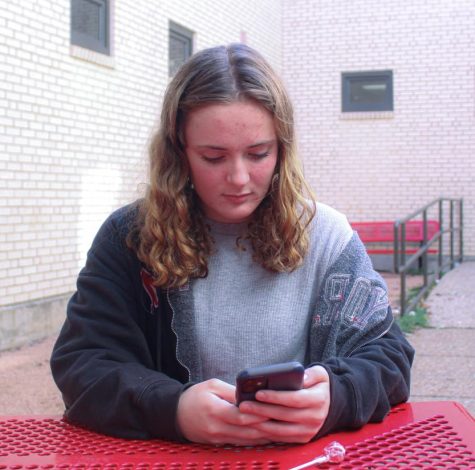
“I could notice changes in myself,” Jacque said. “I feel like in the situation of COVID, that you don’t really have much control over your life.”
Negative feelings overwhelmed her — so she turned her mind to the one thing she could control: her eating.
Jacque said that she did have a level of body insecurity growing up, but when quarantine hit, there was nothing to stop these feelings from growing.
She grew obsessed with losing weight. She would stand on a weight scale ten times a day, hoping to see a slightly lower number than the last time.
“Once I started seeing success and seeing the number decrease the more I had an obsession with it and weighing myself more and more times a day,” Jacque said.
***
Dinner time was another struggle. After stepping off the scale, Jacque looked over at the clock. She needed to see how much longer she had until her family dinner at 7 p.m. That day, she’d eaten one meal: a small salad that was 90% lettuce.
Jacque needed to save up her appetite to eat at dinner, or her family would notice that she wasn’t eating. They would get worried and intervene. Then, she would lose the only control she felt like she had.
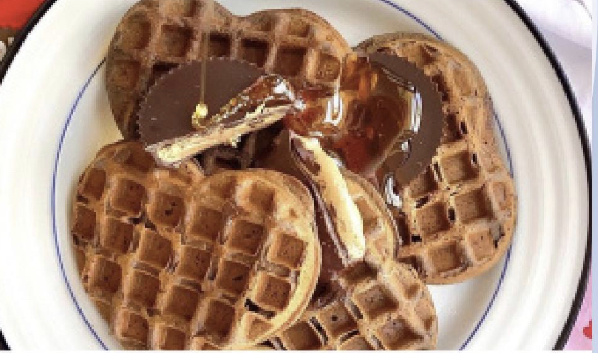
Her negative thoughts started manifesting in the form of physical sickness. Bloating that made her stomach as hard as a rock, constant fatigue and stomach pain for months on end consumed her energy and made finding food she liked and could eat difficult.
Her parents were concerned about her weight loss, so they made an appointment with her doctor. Going into it, only Jacque knew that her disordered eating might have been one of the reasons she was losing weight.
“It wasn’t necessarily because I was not eating enough,” Jacque said. “But they had noticed that I was losing weight. They were concerned that that was a health issue, which is why I saw the doctor.”
Laura Stevenson, Jacque’s mom, said that Jacque was scared to eat certain foods because she did not want her stomach to hurt. She often ate low nutrient dense foods like carrots and celery.
Jacque got bloodwork done and an endoscopy to find out the root cause of her symptoms.
One week later, the phone rang. Jacque’s mom lifted it up to receive the results of the biopsy confirmation: celiac disease.
Now, to add to the foods that she had banned herself from, Jacque had a long list of foods she couldn’t eat anymore.
“When you’re restricting a lot of certain foods and stuff, it takes over a lot of your thoughts,” Jacque said.
Water polo team dinners became even more difficult as her food restrictions started to impact her outings.
Jacque would sometimes use celiac disease as justification to not eat. The easiest way to avoid adding extra calories to the log in her head was saying that the food might upset her stomach.
“Being somewhere, even if there was something I could eat, I would always just use the excuse, ‘Oh, I can’t eat here’,” Jacque said.
Soon, the people in her life were commenting on all the weight she had lost. But instead of being concerned, they sounded happy for her.
“Sometimes people would point out that I was skinny, or had no body fat,” Jacque said. “But the thing is that people never really said that in a negative connotation.”
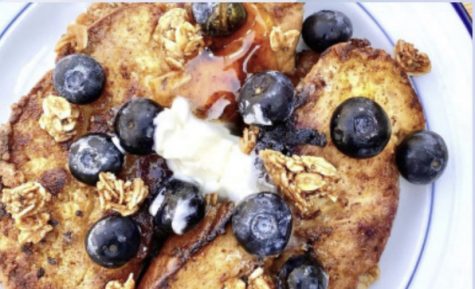
The positive feedback reinforced the idea that her eating habits were good for her.
“I kind of felt like if I got to be very skinny, people would somehow love me more, or I would be better or something like that,” Jacque said. “Or that I would be happier.”
After another checkup, her doctors found that her BMI percentile had significantly dropped. When they examined Jacque, her face was gaunt and her hair was dry. She had been quiet before, but by this point, she had completely retreated into herself. Her personality shut down as soon as her body did.
After seeing the concern on her doctors’ and parents’ faces, she knew she had to help herself.
At the time, gaining weight seemed like an impossible task. So, her first baby step was maintaining her weight.
“I stayed at a specific weight for a very long time … but I was still restricting my food or my intake, because I was scared of gaining weight,” Jacque said.
This meant her daily life still involved weighing herself too frequently and restricting calories, but she started leaving these unhealthy habits behind.
“February or March of this year is when I just decided that I wanted to live my life,” Jacque said. “I wanted to eat what I want, and not have to worry about my body image and … becoming much more accepting of myself.”
This spring, Jacque earned a spot on the varsity water polo team. She wanted to feel the exhilaration of being filled with energy again while she practiced and competed.
Part of her desire to get better was her drive to help her team.
“I kind of realized that I wasn’t really impacting just myself anymore,” Jacque said. “Really, if I were to not have energy during practice or a game, I’m also impacting other people. And, you have to eat to be able to grow and become stronger,” Jacque said.
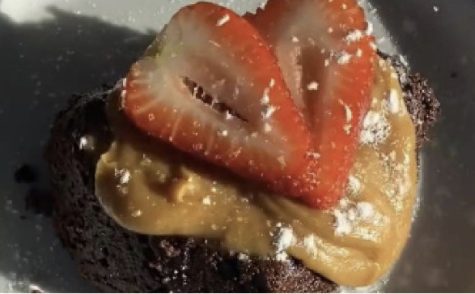
After months of elimination diets and finding foods that made her feel comfortable like peanut butter, Laura said that Jacque was one step closer to recovery.
“You’d have to go through the process of journaling and eliminating things to see what is bothering you,” Laura said. Now, she’s already through that hurdle and through that process. I think she’s just more free with what she’s able to eat.”
On July 10, Jacque came home to a batch of gluten free brownies from a bakery in her kitchen. She took a bite and savored it, without calculating the calories in her head or stopping herself from taking another bite. In that moment, Jacque realized that she had finally felt comfortable in her own body.
She let go of the past birthdays when she didn’t touch the cake that was bought just for her, secretly hoping that her family would eat it instead. This time, she dug into the plate.
***
As Jacque started to recover, her Instagram account Freely Jacque grew with her. Jacque has found freedom with food through posting gluten and dairy free recipes. She’s gathered over 55k followers.
Junior Elin Cho, Jacque’s friend, said that she has seen the account help Jacque in her recovery process.
“She thought she only had certain foods she had to eat,” Cho said. “ Creating recipes and food that she actually enjoyed really helped her.”
Jacque archived her old posts that she associated with restriction and is now focusing on posting content that achieved her initial goal: to share easy gluten free recipes with others.
“This was just a creative outlet for her to maybe be able to emotionally express herself as it related to celiac and gluten free,” Laura said.
Cho said that channeling her energy into others has given Jacque a sense of satisfaction.
“She felt really happy about it, sharing it with others who might also be dealing with that,” Elin said.
Through this journey, she has embraced the lessons she learned.
“I accept my body for what it is more than I even did before,” Jacque said.




